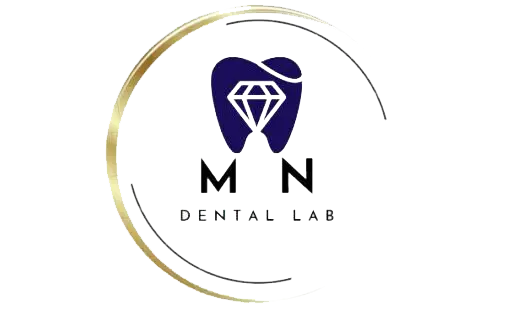Teeth Grinding in Lake Elmo, MN
Schedule your appointment with us today!
Bruxism, more commonly known as teeth grinding, has been silently plaguing a significant portion of the adult population in Lake Elmo, MN. Many are unaware of their condition, yet suffer from symptoms that range from mild jaw discomfort to serious dental damage. Local dental professionals are taking strides to increase community awareness, offering free screenings and initiating educational programs. The emphasis lies on understanding the causes, recognizing the symptoms early, and exploring effective treatment options available locally. This critical conversation aims to promote better oral health in our community.
Understanding Teeth Grinding
A significant number of individuals grapple with teeth grinding, a condition medically known as bruxism, often without their knowledge. This unconscious habit can occur both during the day and at night, with varying degrees of severity. The repercussions can range from mild discomfort to severe dental damage, making teeth protection a vital aspect of managing this condition.
One of the common bruxism myths is that it’s merely a harmless habit. However, ongoing bruxism can lead to jaw disorders, headaches, damaged teeth, and other oral health complications. Understanding the causes of bruxism, which may include stress, anxiety, abnormal bite, sleep disorders, and certain lifestyle habits, is the first step in combating this potentially damaging condition.
Another prevalent myth is that bruxism is unpreventable. However, with appropriate measures such as stress management, avoidance of stimulating substances, and usage of mouthguards, teeth protection can be effectively implemented. Regular dental check-ups also play a vital role in early detection and prevention of further dental damage.
Prevalence in Lake Elmo
Shifting our focus to Lake Elmo, Minnesota, it is essential to acknowledge that teeth grinding is not an isolated issue. In fact, the prevalence within this community is considerably higher than one might initially presume. According to recent studies, a significant percentage of the adult population in Lake Elmo has reported experiencing symptoms associated with teeth grinding, or bruxism, highlighting the urgency for heightened community awareness and thorough dental education.
The rise in bruxism cases in Lake Elmo underscores the need for focused community interventions. Dental professionals within the area have begun implementing educational programs, aiming to increase understanding about the implications of teeth grinding and the importance of early detection. Additionally, dental clinics across Lake Elmo are offering free screening services to help identify those at risk and provide immediate assistance.
The high prevalence of teeth grinding in Lake Elmo is a pressing concern and demands a concerted response. By prioritizing community awareness and dental education, it is feasible to mitigate the impact of this condition, foster preventive behaviors, and ultimately enhance the oral health of the community. The challenge is considerable, but so too is the collective resolve to address it effectively.
Potential Causes of Bruxism
Understanding the potential causes of bruxism, or teeth grinding, is vital in addressing this prevalent issue in Lake Elmo, MN. Several factors contribute to this condition, including stress and anxiety, correlations with sleep disorders, as well as certain lifestyle impacts. In the following sections, we will examine these influences more closely, exploring the intricate relationships and how they contribute to bruxism.
Stress and Anxiety Links
In the domain of dental health, one cannot overlook the significant correlation between stress, anxiety, and bruxism, otherwise known as teeth grinding. A considerable number of people in Lake Elmo, MN, and indeed around the world, suffer from this damaging habit, often as a direct result of elevated stress or anxiety levels.
The physical act of teeth grinding is often a subconscious response to psychological distress. When the body experiences heightened levels of stress or anxiety, it may respond by tensing various muscle groups, including those in the jaw. This tension can lead to the involuntary grinding of one’s teeth, especially during sleep.
Fortunately, there are effective mindfulness techniques and coping strategies available to manage this condition. Regular practice of mindfulness can aid in reducing stress by promoting relaxation and awareness of the present moment. This can help to alleviate the muscle tension that leads to teeth grinding. Additionally, coping strategies such as cognitive-behavioral therapy have proven beneficial in managing anxiety-related bruxism. These interventions focus on recognizing and altering harmful thought patterns that contribute to anxiety, thereby providing relief from teeth grinding.
Sleep Disorder Correlation
While stress and anxiety undeniably play a significant role in inducing bruxism, the domain of dental health also acknowledges the strong correlation between teeth grinding and sleep disorders. Sleep apnea, a disorder that involves repeated interruptions of breathing during sleep, is often linked with nocturnal bruxism. This is thought to be due to the body’s response to the lack of oxygen, causing a reflex action that leads to teeth grinding.
Moreover, the condition known as Restless Legs Syndrome (RLS), which entails an overwhelming urge to move the legs during rest, is another sleep disorder that correlates with teeth grinding. People with RLS often experience periodic limb movements during sleep, which can trigger bruxism.
It is essential to note that these sleep disorders not only contribute to the onset of bruxism but also exacerbate its intensity. The continuous grinding can lead to other oral health issues such as tooth wear and damage, temporomandibular joint disorders, and even changes in facial appearance. As a result, in managing bruxism effectively, addressing potential underlying sleep disorders should be a significant component of the treatment approach.
Lifestyle Factors Impact
Certain lifestyle factors have been identified as potential causes of bruxism, or teeth grinding. These include dietary influences and certain habits which, when modified, can lead to significant lifestyle adjustments and potential reduction in teeth grinding.
Dietary influences play a considerable role in bruxism. High intake of caffeine, alcohol, and certain recreational drugs can stimulate the nervous system, leading to involuntary teeth grinding. Similarly, a deficiency in certain nutrients, particularly magnesium, has been linked to bruxism. A balanced diet rich in essential nutrients can hence help mitigate the issue.
Stress, another significant lifestyle factor, is often associated with teeth grinding. High-stress levels, especially when not managed effectively, can manifest physically as bruxism. Regular physical exercise, mindfulness activities, and adequate sleep can help manage stress levels, thereby reducing teeth grinding.
Moreover, certain behaviors like smoking, excessive alcohol consumption, and high caffeine intake, when curbed, can result in lifestyle adjustments that alleviate bruxism.
Recognizing Symptoms
Understanding the signs of teeth grinding is essential for early diagnosis and treatment. A helpful resource for patients is watching bruxism treatment techniques in action, as visual demonstrations can enhance understanding of the condition and the options available. This thorough overview will equip you with the knowledge to recognize and respond to the symptoms of teeth grinding in a timely manner.
Identifying Teeth Grinding Signs
Diving straight into the topic, teeth grinding, also known as bruxism, often goes unnoticed due to its primarily nocturnal occurrence. Changes in nighttime habits, such as increased restlessness or frequent awakenings, can be indicative of this condition. It’s vital to learn how to identify the signs of teeth grinding to protect your oral health.
One common sign of bruxism is damage to the teeth. This can be seen as fractures, loose teeth, or wear on the biting surfaces. Another sign is changes in the mouth and jaw. People with bruxism may develop painful or tight jaw muscles, or they might notice that their jaw doesn’t open or close completely.
Furthermore, individuals may also notice changes in their sleep pattern. Waking up frequently during the night or experiencing unusual fatigue during the day may be a result of teeth grinding. Changes in oral health, such as increased sensitivity or tooth pain, can also indicate bruxism.
Recognizing these signs early can aid in the timely treatment of bruxism. If you notice any of these symptoms, it’s important to consult a dental professional for a thorough evaluation.
Physical Symptoms of Bruxism
In the domain of physical symptoms, bruxism presents a distinct set that extends beyond oral health. This involuntary grinding and clenching of teeth can lead to a litany of uncomfortable and often painful manifestations.
Most commonly, individuals may experience jaw pain or tightness, which can extend to the face and neck. Chronic headaches, especially upon waking, are another prime indicator of bruxism. Over time, the excessive pressure exerted by grinding can lead to dental damage. This may include tooth chipping, flattening, or even loss, exacerbating the need for early intervention and appropriate bruxism treatments.
Dental appliances have proven valuable in mitigating the physical impacts of bruxism. Custom-made night guards, for example, can help cushion the teeth during sleep, reducing the risk of damage. Furthermore, these devices can alleviate the jaw strain and tension that often accompany this condition, providing much-needed relief.
Increased tooth sensitivity is another critical symptom, as the protective outer layer of the tooth, known as the enamel, gets worn down over time due to constant grinding. This can lead to discomfort, especially when consuming hot or cold foods or beverages.
Recognizing these physical symptoms early can greatly improve the effectiveness of bruxism treatments and minimize potential complications.
Psychological Effects of Grinding
While the physical repercussions of bruxism are stark and often quite visible, its psychological implications are equally serious yet less overt. The constant strain of teeth grinding can lead to a disruption in the psychological well-being of an individual, causing emotional distress and affecting their overall quality of life.
The persistent discomfort and pain linked with bruxism can cause anxiety and depression, leading to a vicious cycle where the stress from these disorders further exacerbates the grinding. This emotional distress may manifest as mood swings, irritability, or difficulty concentrating, affecting personal relationships and work performance.
Moreover, the disruptions in sleep caused by bruxism can result in chronic fatigue, which can have a detrimental impact on mental health. The ongoing lack of quality sleep can lead to cognitive dysfunction, depression, and even increase the risk of more severe psychological disorders.
Dental and Health Impact
The repercussions of teeth grinding extend far beyond the dental sphere, permeating various aspects of overall health. This condition, scientifically known as bruxism, primarily impacts oral health but it carries the potential to influence other areas of personal wellbeing.
The oral health effects of bruxism can be severe and long-term, particularly if the issue goes unaddressed. Over time, the constant grinding wears down the tooth enamel, leading to increased tooth sensitivity and, in some cases, tooth loss. Additionally, the excessive pressure exerted on the jaw can lead to temporomandibular joint disorder (TMJ), a painful condition that disrupts normal jaw function.
The health implications of teeth grinding extend beyond the oral cavity. Chronic bruxism increases the risk of headaches and earaches due to the constant strain on facial muscles and joints. In severe cases, it can also lead to sleep disorders such as insomnia and sleep apnea.
Local Treatment Options
Addressing bruxism promptly and effectively is essential for maintaining overall health. Fortunately, in Lake Elmo, MN, patients suffering from teeth grinding are presented with a variety of local treatment options to help manage the issue.
One of the most common treatment modalities is the use of dental appliances, specifically designed to prevent further damage to the teeth and reduce jaw discomfort. These appliances, often referred to as night guards or occlusal appliances, are custom made to fit the individual’s mouth. They create a protective barrier between the upper and lower teeth, thereby reducing the impact of grinding.
In addition to dental appliances, local remedies also play a significant role in treatment. These can range from stress management techniques, such as yoga or mindfulness, to physical therapies targeting jaw muscles. In some cases, medication may be prescribed to alleviate symptoms or address underlying issues contributing to bruxism.
It’s important to note that these treatment options are not one-size-fits-all. A thorough examination and consultation by a dental professional in Lake Elmo, MN is fundamental to determine the most appropriate treatment plan. This personalized approach guarantees that each patient receives care tailored to their specific needs and circumstances.
Prevention Strategies and Tips
Beyond the treatment of teeth grinding, proactive steps can be taken to prevent the onset or progression of bruxism. These preventive techniques primarily focus on lifestyle changes and the use of dental appliances.
Stress and anxiety are major contributors to teeth grinding. Therefore, stress management, relaxation techniques such as yoga, meditation, and professional counseling can greatly reduce the frequency and intensity of bruxism. Additionally, effective resource management within dental clinics ensures the availability of essential tools for bruxism interventions, highlighting the importance of maintaining strategies for inventory control. Limiting consumption of caffeine and alcohol, which are known to exacerbate teeth grinding, can also be beneficial
Dental appliances play an integral role in bruxism prevention. Dentists may recommend a mouth guard or splint, which creates a physical barrier between the upper and lower teeth, preventing damage from grinding or clenching. These appliances are typically worn at night and are custom-made to fit the individual’s mouth for maximum comfort and effectiveness.
In cases where teeth grinding is caused by an abnormal bite or missing or crooked teeth, dental correction may be necessary. This could involve braces, aligners, or even restorative dental work.
make an appointment
Needs Any Servicing Get Appointment Now
To schedule your appointment, simply fill out the form below or give us a call. Our friendly staff will work with you to find a convenient time for your visit. We look forward to welcoming you to our practice and helping you achieve your dental goals.
Call us for a quote today!
+123-456-7890
testimonials
What clients says about us
Here are three testimonials for MN Dental Lab based on their services and customer experiences:
“MN Dental Lab consistently delivers high-quality crowns and bridges. Their precision and timely service are unmatched. Highly recommend!”

mack McGuire
Miami, FL
“The dentures from MN Dental Lab fit perfectly and look natural. My patients are very satisfied. Great service and craftsmanship!”

ellyn garzon
Santa Cruz, CA
“Their attention to detail and commitment to excellence truly set them apart. From the moment I walked in, I felt welcomed and cared for by their friendly staff. The quality of their work is exceptional, and I couldn’t be happier with the results. I highly recommend MN Dental Lab to anyone in need of top-notch dental care.”

Helga Parham
Saint Paul, MN
about us
Get Satisfied With The Services We Provide
From crowns and bridges to dentures, implant restorations, orthodontic appliances, and cutting-edge digital solutions, we strive to exceed expectations and deliver superior outcomes that enhance patient satisfaction and oral health.
98%
satisfied clients
7500
Successful Restorations
120+
Dental Professionals Partnered
29+
